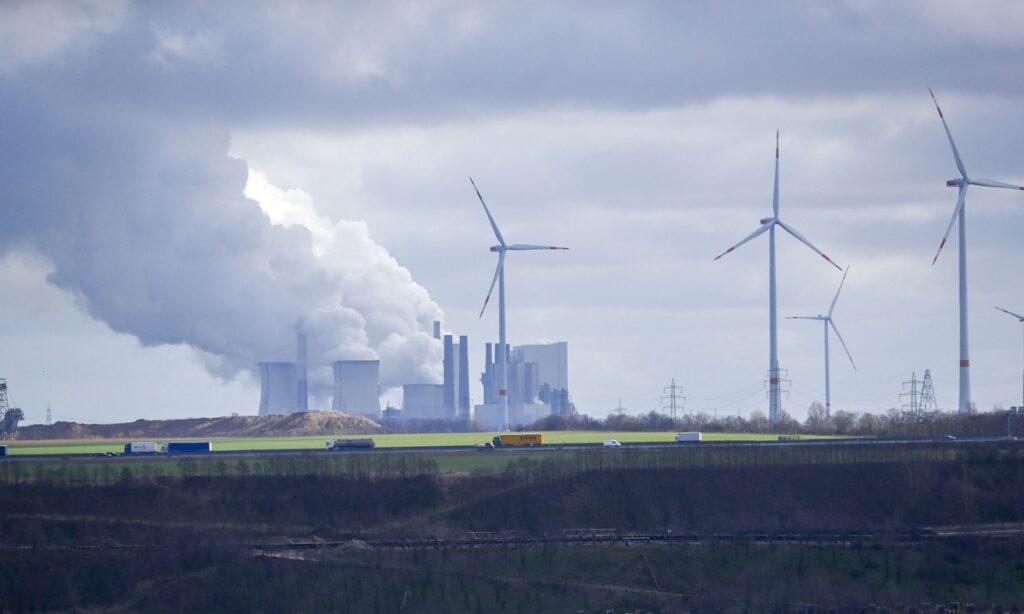China finds it regrettable that the G20 Environment and Climate Ministers’ Meeting failed to adopt a communiqué due to the introduction of geopolitical issues by certain countries, a Chinese Foreign Ministry spokesperson said on Wednesday after some Western media accused China of “backing away from making commitments at the meeting.”
The European Union’s environment commissioner Virginijus Sinkevicius criticized the outcome of the meeting of the world’s largest economies in the Indian city of Chennai, Al Jazeera reported. He said it showed that G20 countries, which account for up to 80 percent of global greenhouses emissions, were “nowhere” on their commitments to address climate change.
Members of a European delegation said China and oil-rich Saudi Arabia had “backed away from making commitments at the meetings,” the Guardian reported, accusing China of obstructing discussions on tackling the crisis.
The Chinese Foreign Ministry refuted the reports on Wednesday, saying that they run counter to the facts.
As a premier forum for international economic cooperation, the G20 should provide a useful supplement to the UN’s main channel negotiation on climate change, make sure no new South-North gap will be created in responding to climate change, and realize a just, green and low-carbon transition worldwide, the ministry’s spokesperson said.
At the G20 meeting, developed countries demanded mitigation of greenhouse gas (GHG) emissions by 2025 to limit global warming to around 1.5 C and a reduction of absolute GHG emissions by 43 percent by 2030, media reports said.
Both demands were opposed by developing countries, according to an official who did not want to be named.
“Clearly this target is ‘mission impossible,'” said Lin Boqiang, director of the China Center for Energy Economics Research at Xiamen University, on Wednesday.
Developed countries are the ones who produced the most greenhouse gases in previous years and they cannot just take advantage of all the opportunities before, yet now push those that are still in the process of development to bear all the responsibilities,” Lin told the Global Times. “It’s just unfair and unrealistic,” he said.
What’s more, while the rich, developed countries can afford to meet these carbon emission reductions goals, but developing countries still lack enough economic strength. These are the things that developed countries should pay attention to, instead of constantly insisting on equal emissions reductions, which is not feasible, the expert noted.
There are also differences between the US and Europe in their stances on addressing climate change issue, experts said.
While Europe, battered by extreme heat waves this summer, genuinely wants progress in addressing climate change, the US is only giving “empty talk” while politicizing the issue to contain China.
The Foreign Ministry urged developed countries to take seriously their capabilities, responsibility and obligations in climate response, further increase emissions reduction, deliver on their commitments as soon as possible, provide climate funding and technology transfer to developing countries, and stop acts that affect and undermine global climate response such as adopting unilateral measures, decoupling, severing industrial chains and erecting trade barriers.
UN Secretary General António Guterres warned on July 27 that as the world has been suffering a month of heat with record high temperatures that the “era of global boiling has arrived.” Scientists confirmed that July is on track to be the world’s hottest month on record.
Meanwhile in Beijing, the capital recorded extreme rainfall of 744.8 millimeters during rainstorms between Saturday evening and Wednesday morning, making it the heaviest deluge to hit the city in 140 years, after the remnants of Typhoon Doksuri lashed the city causing extensive flooding, leading to the loss of at least 11 lives.
As extreme weather takes its toll globally, Chinese experts called on certain countries to set aside their political agendas and take drastic action on international cooperation to curb global warming.
(Global Times)




